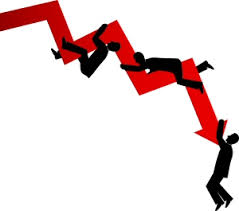If you’re a trader, chances are you’ve miscalculated a stock deal and paid dearly for it. But investors still bet big with stocks because it offers quick returns. Take 2014 for instance. The bullish run by Nairobi Securities Exchange meant that the bourse was the fastest mode of investment return in the short-term compared to real estate.
“Many people think that trading is the simplest way of making money in the stock market. Far from it; I believe it is the easiest way of losing money,” says Ashwani Guraj in How to Make Money Trading Derivatives.
After losing money in a land deal gone sour in 2009, Mr Chambua Ogoti was convinced that the bourse would be his redeemer. For years, Mr Ogoti held a risk-free view of the market. “I bought shares believing that it would be my fast ticket to riches. Unfortunately, my judgment was based on what stocks were most appealing to the eye rather than their fundamentals,” says the stocks investor and securities analyst.
Financial meltdown
He decided to go for Co-operative Bank shares. “I bought them at Sh22 per share,” with a plan to hold them for some months. Unfortunately, the financial meltdown, whose effects saw inflation surge in Kenya, gripped the world economy. “When I checked on my portfolio in 2011, the share price had eroded to Sh11 apiece.”
And for three years, Mr Ogoti sat on a Sh460,000 loss. “The loss was too huge. I couldn’t sell. But I also believed that I should never make a loss in the stock exchange. Holding the stock would never be a loss unless I offloaded,” he says.
In an attempt to understand when the rain started beating him, Mr Ogoti turned to research. “I researched on the stock market and gradually, began to understand how it works.” He realised that with a long-term approach, his investment would recover.
“I bought more shares to average my loss down and by the time the stock rose to Sh23 per share, I was in profit with a series of dividends and bonus shares in my name.”
In 2009, Geoffrey Ndirangu and his nine friends started executing their investment plan. “We started Decaplus Investment and bought 10,000 Kenya Power shares at Sh23 per share only for the price to hit to lows of Sh14 apiece. Since then, we’ve been holding in hope that the counter will appreciate,” says Mr Ndirangu.
Unfortunately, Kenya Power has not touched Sh20 over the past one year. The counter is currently trading between Sh14 and Sh15.
As fate would have it: “we also bought Mumias Sugar at Sh9 per share. The counter kept depreciating and by the time it dipped to Sh5 per share, we were faced with financial needs and opted to sell at a loss,” says Mr Ndirangu.
Speculators
But why do investors fall into such losses? According to head of research at Sterling Capital Limited, Mr Eric Munywoki, the market is fraught with speculators.
“We’ve investors who come to the market speculating that a particular counter will appreciate. If the counter shows signs of dipping, they infiltrate the market with overwhelming supply as they attempt to exit or cut their losses,” he says.
Robert Ochieng’ agrees. “I learned the hard way last year after buying Unga. I took position with 3,500 shares at Sh34 each. The stock then dipped to Sh29. I panicked and once the counter began to rise, I sold 3,000 units at a loss price of Sh32 per share. It was terrible. But in four months, the stock rose to Sh54 per share. I wish I had held it longer.”
According to Mr Munywoki, a long-term investment plan always pays dividend. “This is the approach that gives NSE billionaires huge returns. They do not buy stocks looking to exit after three days. They take position and begin to accumulate big stakes,” he says.
Interestingly, this ability to buy and hold a value counter enabled Mr Ochieng’ to smile all the way to the bank last year. He bought Equity Bank shares at Sh29.50 each in 2013. In September 2014, Equity Bank rallied to Sh62 per share. Mr Ochieng’ sold 10,170 shares, earning Sh630,000. “I used the profit to pay for my master’s degree fees at the University of Nairobi,” he says.
Value investor
While Mr Ochieng’ previously kept track of his stocks’ daily performance, he has matured. “I’ve become a value investor who is keen on the company books, the respective industries and growth strategies.”
According to Mr Ogoti, “buying shares is more than a transaction. It means you’re owning a piece of the company. Why would you want to own a company whose financials and outlook you have no clue about?” Mr Ndirangu agrees: “before putting money in any investment vehicle, you must have detailed information on the target company,” he says.
“This will afford you the comfort of investing without the anxiety that your stock will head north or south the following day.”
Patience
Further, Mr Munywoki calls for patience by singling out Kenya Airways. “In the past two years, we’ve been faced with terror threats that have dimmed our tourism figures. The biggest casualty at the stock market has been the loss-making Kenya Airways.” He adds that in case you buy a stock and after two months the company suffers loss, offloading your stake immediately makes no sense.
“In such scenarios, the counter is likely to fall as the market reacts to the news. But if you hold, you will notice that the share price will gradually recover, especially if the company is stable and well-managed.”









